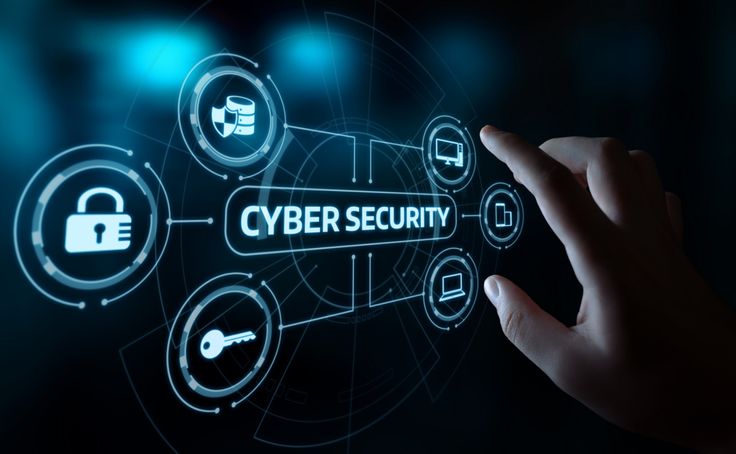Understanding Ethical Hacking : Ethical hacking plays a critical role in safeguarding information and systems from cyber threats. It involves testing systems and networks to identify vulnerabilities before malicious hackers can exploit them. The primary goal of ethical hacking is to improve security by pinpointing and addressing weaknesses. Ethical hackers employ a variety of techniques and tools, such as penetration testing and vulnerability scanning, to simulate attacks and assess the resilience of systems. This proactive approach helps organizations fortify their defenses against potential threats.
Legal Framework for Ethical Hacking : Navigating the legal landscape of ethical hacking is crucial for security professionals. The legal framework governing ethical hacking is complex and varies by region. Cybersecurity laws provide the structure within which ethical hackers must operate. In the United States, the Computer Fraud and Abuse Act (CFAA) addresses unauthorized access to computers and networks, making it essential for understanding what constitutes legal versus illegal hacking. In Europe, the General Data Protection Regulation (GDPR) impacts how personal data must be handled, affecting ethical hacking practices, particularly concerning data privacy and security. Compliance with these laws is essential for ethical hackers to avoid legal complications and ensure that their work supports legitimate security efforts.
Permission and Authorization : Securing explicit permission before conducting any security test is vital for ethical hackers. Without proper authorization, even well-intentioned actions can be deemed illegal. To avoid legal trouble, ethical hackers must obtain written authorization from the organization whose systems they intend to test. This written approval should clearly define the scope of the testing, outlining what will be tested and under what conditions. By adhering to the agreed boundaries and avoiding unauthorized access, ethical hackers can ensure that their actions are both legal and beneficial to the organization.
Ethical Hacking Practices : Adhering to a strict code of conduct is essential for ethical hackers to maintain professionalism and trustworthiness. This includes following established ethical guidelines, such as those provided by organizations like (ISC)² and EC-Council. Ethical hackers should implement best practices, conducting tests systematically and ensuring that all activities are thoroughly documented. Additionally, handling any sensitive information discovered during testing with utmost care is critical to prevent data breaches. By maintaining high ethical standards, ethical hackers can contribute to cybersecurity while protecting the interests of the organizations they serve.
Legal Risks and Consequences : Despite the positive intentions behind ethical hacking, it can lead to legal risks if not managed properly. Ethical hackers may face potential legal issues, such as accusations of unauthorized access or data theft, if they fail to adhere to legal and organizational guidelines. Past cases, where security researchers have faced legal action, underscore the importance of legal awareness in ethical hacking. To mitigate these risks, ethical hackers must always operate within the confines of the law and consult legal professionals if they have any doubts about the legality of their actions.
Reporting and Documentation : Proper reporting and documentation are crucial components of ethical hacking. Ethical hackers must clearly document all findings and the methods used during testing. This detailed reporting helps communicate issues to the organization and provides a basis for remediation. Maintaining comprehensive records of testing activities, including permissions obtained and any vulnerabilities discovered, is essential for legal compliance and protecting against potential disputes. Accurate documentation not only supports transparency but also serves as evidence in case of legal challenges.
International Considerations : Ethical hacking often involves cross-border activities, which can complicate the legal landscape. Different countries have varying laws regarding cybersecurity, making it essential for ethical hackers to familiarize themselves with local regulations to ensure compliance. Conducting ethical hacking in multiple jurisdictions can be complex, requiring adherence to international standards and consultation with local experts. By staying informed about international laws and adapting practices to comply with regional requirements, ethical hackers can navigate the complexities of cross-border operations while maintaining legal and ethical standards.
Future Trends in Ethical Hacking and Legal Frameworks : The future of ethical hacking is being shaped by several emerging trends. Advances in technologies such as AI and blockchain are expected to impact ethical hacking practices, requiring new techniques and legal considerations. As these technologies evolve, the legal landscape will also continue to change, with laws and regulations adapting to address emerging security challenges. Staying updated on these legal changes is crucial for ethical hackers to remain compliant and effective in their work. Future developments may include stricter regulations and more robust frameworks designed to protect against the growing complexity of cyber threats.
Ethical hacking is essential for enhancing cybersecurity, but understanding and adhering to legal considerations is equally important. By securing proper authorization, following best practices, and staying informed about legal and international requirements, ethical hackers can contribute to a safer digital environment while avoiding legal pitfalls. The balance between ethical hacking and legal compliance is critical to ensuring that security efforts are both effective and responsible.









Leave your reply